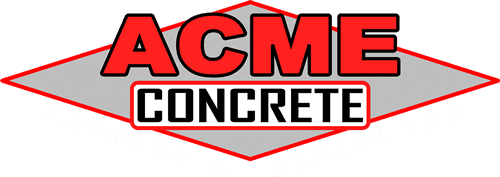We like to keep our customers up-to-date on the latest and most modern technology available! Many people are unaware that sunken concrete can be raised. Let us tell you about the MANY benefits of using polyurethane foam injection.
Here are but a few:
Raising settled concrete is non-invasive and fast! Most projects take less than a day to complete and the raised slabs are ready for immediate use. The best part yet, is that our services typically cost less than half what it costs to remove & replace concrete.
When you raise a slab of settled concrete, it continues to color match the surrounding slabs.
Note: Ever look down at a sidewalk and see one section replaced? It really stands out!
It doesn’t take much settlement to create a trip hazard. When sections of concrete settle tripping hazards may develop, exposing anyone who uses the area to the risk of tripping. Raising settled concrete with polyurethane injections can help minimize these tripping hazards.
Concrete slabs and/or sidewalks constructed along the sides of a building or home are normally pitched so rainwater drains away. Sometimes settlement occurs causing a slab to pitch towards the building. This incorrect pitch can result in several issues:
- Rainwater to enter foundation cracks or overload drain tiles & sump pumps
- Rainwater to accumulate and run beneath the slab continuing to wash away the subbase, potentially causing even more settlement
- Accumulated water to freeze during cold periods, causing the slab to heave thus creating a slipping or tripping hazard
Sunken sidewalks, stoops, patios and driveways affect a property’s visual appeal. Settled concrete usually occurs over time and people may even “get used to it”. Becoming “used to” concrete issues is not uncommon. Our customers are shocked at how improved their property looks, and is, when we’re finished. In addition, leveled concrete gives a well-maintained look. Properties presenting a well-maintained appearance provide a financial value when looking to sell!
If you have settled concrete, it means the subbase has failed. (A subbase is a layer of aggregate placed under the concrete.) Sometimes this “base” material will settle evenly across the bottom of the slab. Other times, it doesn’t. Uneven subbase settlements, due to washout or poor compaction, mean the slab may be supported in some areas but not in others. Unsupported concrete can break from its own weight, daily use or from applying normal loads. Large, heavy load-bearing slabs like driveways and parking lots, can run a higher risk of cracking due to uneven subbase settlement.
Sidewalks, patios and slabs are occasionally adjacent to building entrances having a step or stairs. If a sidewalk or slab settles 2 inches, this would result in the step being 2 inches higher, causing a safety hazard. Local ordinances regulate step height. Depending on whether you’re in a residential or commercial building, and depending on which Chicago Suburban area you are located in, the premises most likely is subjected to one or more of the following codes:
- International Residential Code
- International Building Code
- Illinois Accessibility Code
In most residential settings (detached one and two family dwellings, and townhouses not more than three stories), step height should be between 4 and 7.75 inches high, otherwise 7 inches is a common maximum height. We recommend always checking your local code to be certain.

